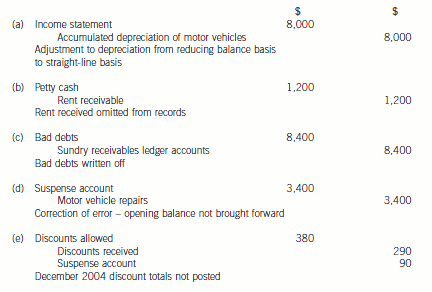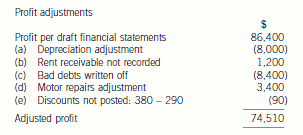如果河北省考生符合这些条件,那么ACCA证书就是为你量身订做的
发布时间:2020-01-09
听闻ACCA证书含金量高你就随大众就去报考?听闻ACCA考试难度很大然后你就放弃考试?这样的想法可是不对的,做什么事一旦决定了就要坚持下去,坚持不懈虽然不一定成功,但一定会不留遗憾的。虽然关于ACCA考试并不适合大家全部人都去报考,但下面这几类人去51题库考试学习网十分建议去报考的
1、高中及大专学历者
在职场上,因为学历的原因吃了不少的亏的人,建议可以去报考ACCA考试,因为随着财务金融领域对这方面要求的综合素质又比较高,那么通过ACCA来提高自己的学历以及职业竞争力,是一箭双雕的选择。
2、学校不好想要逆袭
那些不是985或者211院校的普通院校毕业的同学,其实学习ACCA,不仅能提高英语成绩,提高眼界和知识面,还能提高你的自信和思维能力,在面对名校人才竞争时,你未必争不过。
3、英国留学生、会计硕士
ACCA是英国的财会考试,如果你正好在英国留学,并且就读于会计相关专业,那你的优势可就大了,因为ACCA官方总部是在英国的,完全可以利用教材、地点之便参加ACCA考试。作为本土考试,在英国大学里学习相关知识,可以让你更快掌握英式的答题思路和逻辑思维,考起试来事半功倍。
4、想让大学生活更充实的大学生
大学是很多人人生最后能够专心学习的求学阶段,也是我们踏入社会、告别读书的过渡时期,大学不会再像高中那样几乎所有的时间都被占据,而是拥有很多个人闲暇时光。因此你可以利用自己的闲暇时间来学习和复习关于ACCA的内容,毕竟多考一个证书多一个选择嘛。如果你不好好利用,大学四年也会匆匆而过。如果不甘心大学就此平庸,希望能够更加充实,学习到更多的知识,掌握更多的技能,那么,学习ACCA是个很不错的选择。你会发现,学了之后,ACCA带给你的收获远超你的想象。
5、想毕业后找到好工作的人
大学毕业后有很多不同的选择,有人考研、有人出国、有人直接工作。但对于选择直接工作的同学来说,必须想方设法提高自己的职场竞争力。考一个ACCA证书又不尝是个正确的选择呢?毕业生每年都在增长,毕业就失业并不是危言耸听。
6、外企工作者
虽然汉语是使用人数最多的语言,但英语毕竟是国际商务领域中普遍应用的语言,外企总是首先希望招聘到有较高英语写作与会话能力的人才。ACCA的考试里面独一无二的全英文考试也印证了对外企人才招募的对标程度。能成功通过ACCA考试的人英语一定不是太差,这对于应聘外企是一份巨大的优势。
以上信息希望对你报考ACCA考试有所参考,没有提及的一部分类型的人并不是证明不适合报考,只是提倡大家踊跃尝试,完善自身的同时也为这个社会提供了自己的一份力量。当然,是否报考ACCA考试最重要的的因素还是自身,适合自己的才是最好的。所以,各位ACCAer们,加油!预祝大家2020年3月份的考试成功通过~
下面小编为大家准备了 ACCA考试 的相关考题,供大家学习参考。
5 International Financial Reporting Standards (IFRSs) are primarily designed for use by publicly listed companies and
in many countries the majority of companies using IFRSs are listed companies. In other countries IFRSs are used as
national Generally Accepted Accounting Practices (GAAP) for all companies including unlisted entities. It has been
argued that the same IFRSs should be used by all entities or alternatively a different body of standards should apply
to small and medium entities (SMEs).
Required:
(a) Discuss whether there is a need to develop a set of IFRSs specifically for SMEs. (7 marks)
5 (a) IFRSs were not designed specifically for listed companies. However, in many countries the main users of IFRS are listed
companies. Currently SMEs who adopt IFRS have to follow all the requirements and not all SMEs take exception to applying
IFRS because it gives their financial statements enhanced reliability, relevance and credibility, and results in fair presentation.
However, other SMEs will wish to comply with IFRS for consistency and comparability purposes within their own country and
internationally but wish to apply simplified or different standards relevant to SMEs on the grounds that some IFRS are
unnecessarily demanding and some of the information produced is not used by users of SME financial statements.
The objectives of general purpose financial statements are basically appropriate for SMEs and publicly listed companies alike.
Therefore there is an argument that there is a need for only one set of IFRS which could be used nationally and internationally.
However, some SMEs require different financial information than listed companies. For example expanded related party
disclosures may be useful as SMEs often raise capital from shareholders, directors and suppliers. Additionally directors often
offer personal assets as security for bank finance.
The cost burden of applying the full set of IFRS may not be justified on the basis of user needs. The purpose and usage of
the financial statements, and the nature of the accounting expertise available to the SME, will not be the same as for listed
companies. These circumstances themselves may provide justification for a separate set of IFRSs for SMEs. A problem which
might arise is that users become familiar with IFRS as opposed to local GAAP thus creating a two tier system which could
lead to local GAAP being seen as an inferior or even a superior set of accounting rules.
One course of action would be for GAAP for SMEs to be developed on a national basis with IFRS being focused on accounting
for listed company activities. The main issue here would be that the practices developed for SMEs may not be consistent and
may lack comparability across national boundaries. This may mean that where SMEs wish to list their shares on a capital
market, the transition to IFRSs may be difficult. It seems that national standards setters are strongly supportive of thedevelopment of IFRSs for SMEs.
2 The draft financial statements of Choctaw, a limited liability company, for the year ended 31 December 2004 showed
a profit of $86,400. The trial balance did not balance, and a suspense account with a credit balance of $3,310 was
included in the balance sheet.
In subsequent checking the following errors were found:
(a) Depreciation of motor vehicles at 25 per cent was calculated for the year ended 31 December 2004 on the
reducing balance basis, and should have been calculated on the straight-line basis at 25 per cent.
Relevant figures:
Cost of motor vehicles $120,000, net book value at 1 January 2004, $88,000
(b) Rent received from subletting part of the office accommodation $1,200 had been put into the petty cash box.
No receivable balance had been recognised when the rent fell due and no entries had been made in the petty
cash book or elsewhere for it. The petty cash float in the trial balance is the amount according to the records,
which is $1,200 less than the actual balance in the box.
(c) Bad debts totalling $8,400 are to be written off.
(d) The opening accrual on the motor repairs account of $3,400, representing repair bills due but not paid at
31 December 2003, had not been brought down at 1 January 2004.
(e) The cash discount totals for December 2004 had not been posted to the discount accounts in the nominal ledger.
The figures were:
$
Discount allowed 380
Discount received 290
After the necessary entries, the suspense account balanced.
Required:
Prepare journal entries, with narratives, to correct the errors found, and prepare a statement showing the
necessary adjustments to the profit.
(10 marks)


Which of the following statements relating to internal and external auditors is correct?
A.Internal auditors are required to be members of a professional body
B.Internal auditors’ scope of work should be determined by those charged with governance
C.External auditors report to those charged with governance
D.Internal auditors can never be independent of the company
A is incorrect as internal auditors are not required to be members of any professional body. C is incorrect as external auditors report to shareholders rather than those charged with governance. D is incorrect as internal auditors can be independent of the company, if, for example, the internal audit function has been outsourced.
(c) Describe the audit procedures you should perform. to determine the validity of the amortisation rate of five
years being applied to development costs in relation to Plummet. (5 marks)
(c) Audit procedures to determine the validity of the amortisation rate of five years being applied to development costs in relation
to the product Plummet would include the following:
– Obtain the papers documenting market research carried out on Plummet. Review and ascertain that the market research
supports a product life span of five years.
– Review actual sales patterns since the launch of Plummet and compare to the predicted sales per the market research
document.
Tutorial note: this will help to demonstrate the accuracy of the predicted sales forecast of Plummet.
– Read the assumptions underpinning the market research sales projections, and consider whether these assumptions
agree with the auditors’ understanding of the business.
– Discuss sales trends with the sales/marketing directors and ascertain whether sales are in line with management’s
expectations.
– Read correspondence with retail outlets to ensure there is continued support for selling Plummet.
– Obtain marketing/advertising budgets and ascertain enough expenditure is continuing on Plummet to support continued
sales.
声明:本文内容由互联网用户自发贡献自行上传,本网站不拥有所有权,未作人工编辑处理,也不承担相关法律责任。如果您发现有涉嫌版权的内容,欢迎发送邮件至:contact@51tk.com 进行举报,并提供相关证据,工作人员会在5个工作日内联系你,一经查实,本站将立刻删除涉嫌侵权内容。
- 2020-01-10
- 2020-01-10
- 2020-01-10
- 2020-01-01
- 2020-09-05
- 2020-01-09
- 2020-01-09
- 2020-02-26
- 2020-01-28
- 2020-01-10
- 2020-02-23
- 2020-02-23
- 2020-02-26
- 2020-02-22
- 2020-02-22
- 2020-02-26
- 2020-01-09
- 2020-01-03
- 2020-01-09
- 2020-09-03
- 2020-04-23
- 2020-01-03
- 2020-01-09
- 2020-02-26
- 2020-01-10
- 2020-01-10
- 2020-02-23
- 2019-01-17
- 2020-02-23
- 2020-02-23